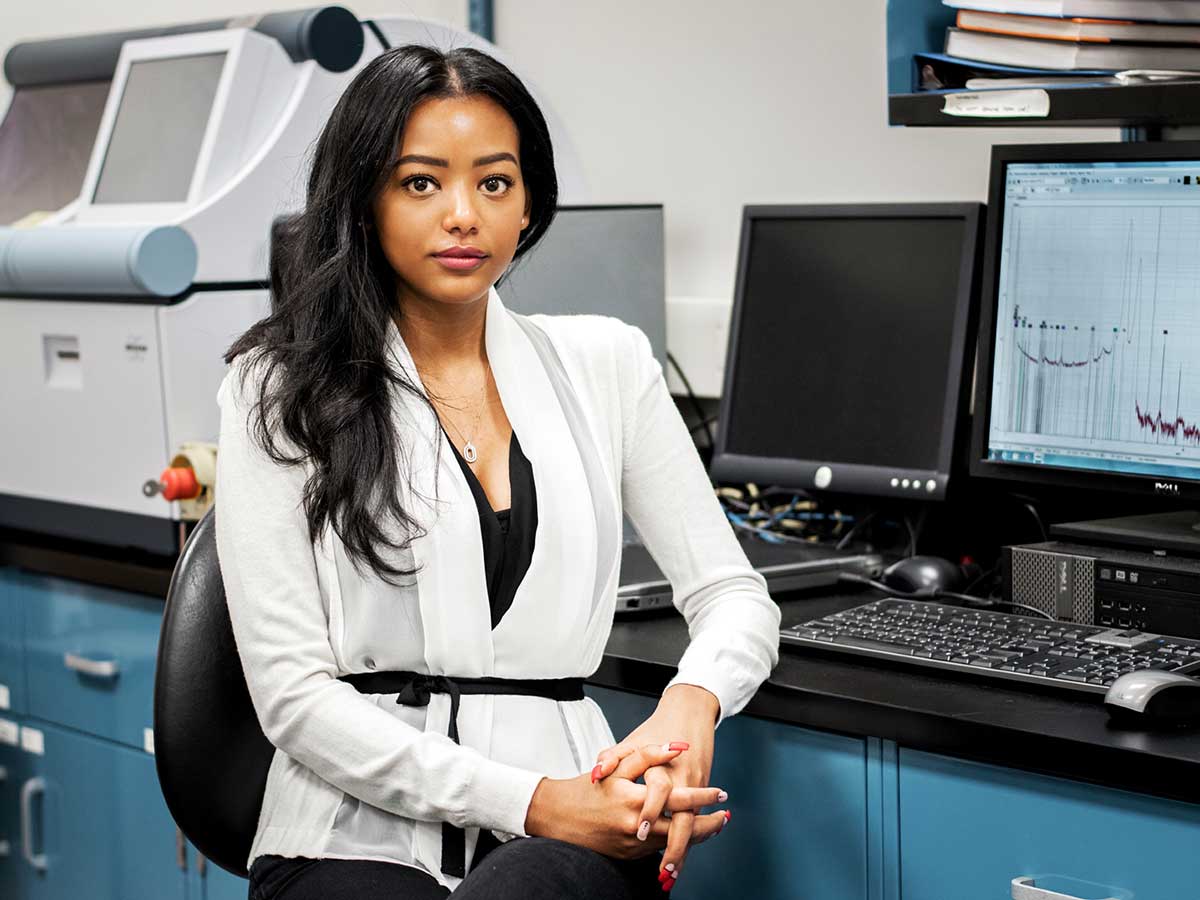Developing new techniques for nanomedicine
Multidisciplinary research and a passion for teaching strengthens Gabriella Mankovskii's love for physics

A vexing problem in medicine is how to use nanoparticles containing pharmaceutical ingredients to effectively target cancer tumours.
Many researchers are working to better understand and improve this therapeutic technique, and among them has been Gabriella Mankovskii, who developed an innovative way to quantify nanoparticles in cancer cells. Working under the guidance of physics professor and department chair Ana Pejović-Milić, she developed a promising technique based on total reflection x-ray fluorescence spectroscopy.
“The technique can assist cancer researchers who develop new nanoparticle-based therapies know how effectively these nanoparticles get to their desired targets,” says the 2022 graduate, whose research was supported by a Queen Elizabeth II Graduate Scholarship in Science and Technology and an NSERC Postgraduate Scholarship. Her findings were published in leading spectroscopy journals such as the Journal of Analytical Atomic Spectrometry and Spectrochimica Acta Part B: Atomic Spectroscopy.
Mankovskii says the project reinforced why she chose to study physics in the first place: “It makes an otherwise chaotic and stressful world so simple and beautiful.” She has shared her various discoveries in seven peer-reviewed articles for top journals, and through 27 conference presentations, one of which earned her a Best Oral Presentation Award for Young Researchers.
A particularly rewarding part of her academic journey, she says, has been working as a teaching assistant in the courses PCS 401 Quantum Mechanics and PCS 300 Modern Physics. Her passion for the subject matter and skill at making physics concepts accessible resulted in her twice receiving the Department of Physics Teaching Assistant Recognition Award, and the Centre for Excellence in Learning and Teaching TA/GA Award.
“I always strove to introduce students to the euphoria and clarity that one experiences from truly understanding physics,” Mankovskii says. “I want all my students to have that “a-ha!” moment and experience the marvel physics can offer.”
Mankovskii’s dedication to the discipline extended to her volunteering as PhD representative to the Physics Graduate Student Union (external link, opens in new window) , Associate Dean Search Committees and the Senate Appeals Committee. Since graduating, she has been working as a nuclear and medical physics researcher with clients in academia and industry.
“I was very fortunate to be part of a program that is so broadly diverse in its content, while still providing me the chance to specialize in what interested me.”
“I want all my students to have that “a-ha!” moment and experience the marvel physics can offer.”